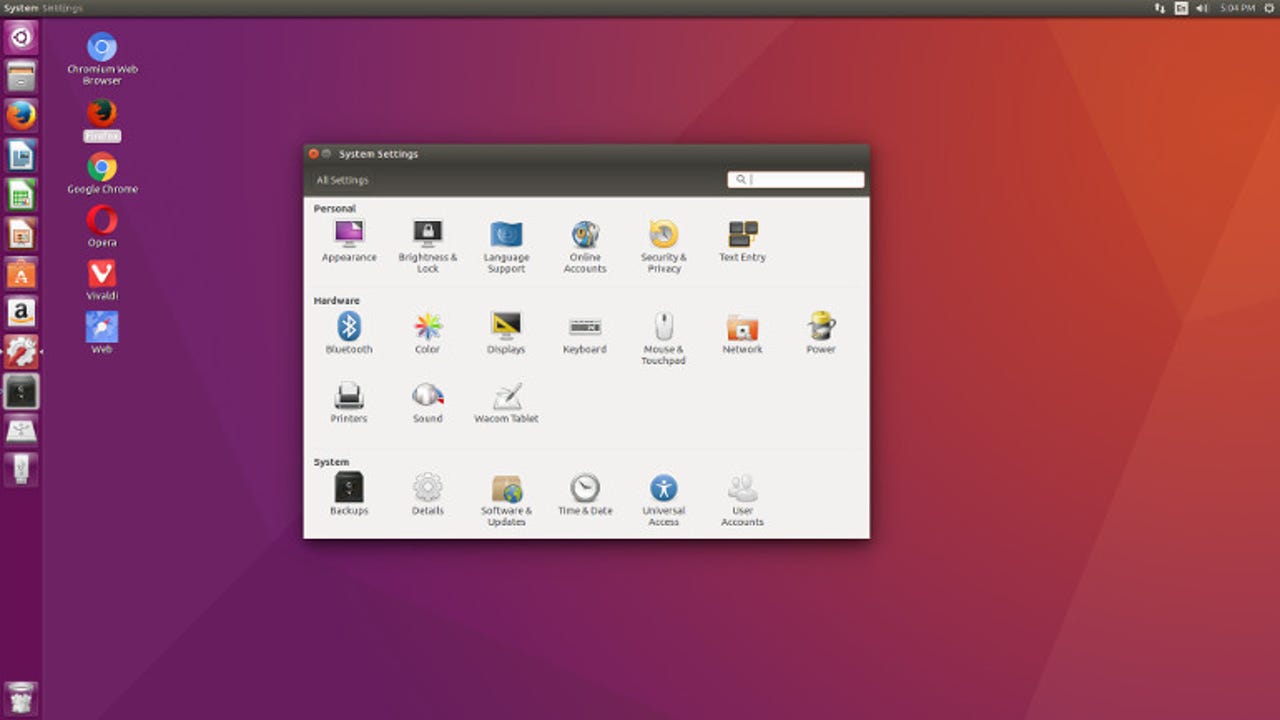Ubuntu switches to GNOME desktop and gives up smartphone hopes

Some of you may have been surprised when Canonical's founder Mark Shuttleworth announced Ubuntu Linux was ending its "investment in Unity8, the phone and convergence shell". I wasn't. Ubuntu had long been a cloud power and it's been building its Internet of Things (IoT) reputation. Shuttleworth and his executives finally decided to play to the company's strongest suit.

Say goodbye to Ubuntu's Unity desktop. Starting in 2018, Canonical is switching back to the GNOME interface.
In some ways, it was an easy choice. Shuttleworth wrote, "The cloud and IoT story for Ubuntu is excellent and continues to improve. You all probably know that most public cloud workloads, and most private Linux cloud infrastructures, depend on Ubuntu. You might also know that most of the IoT work in auto, robotics, networking, and machine learning is also on Ubuntu, with Canonical providing commercial services on many of those initiatives."
Cloud
But, it was also a painful one. Canonical, the company behind Ubuntu, had invested blood, sweat, and tears in its Unity interface for smartphones, tablets, and PCs, and its smartphone. Shuttleworth said, "I took the view that if convergence was the future and we could deliver it as free software, that would be widely appreciated both in the free-software community and in the technology industry, where there is substantial frustration with the existing, closed alternatives available to manufacturers. I was wrong on both counts. In the community, our efforts were seen fragmentation not innovation."
Moving forward on the desktop, Ubuntu is abandoning the long-delayed Unity 8 interface to return to the GNOME desktop starting with next year's Ubuntu 18.04 release.
Some will miss Unity. Software designer and Ubuntu user Richard Gaskin wrote, "'I've found Unity more productive, and have come to rely on it like a trusty friend." Ubuntu Touch developer Mitchell Reese said, "We love Unity8! There is so much promise, and you are so close to success!" If Canonical doesn't move forward with Unity, he, for one, is interested in continuing the project as a fork.
Shuttleworth emphasized that while the company won't be working on the smartphone, the desktop remains a high-priority. "I'd like to emphasize our ongoing passion for, investment in, and commitment to, the Ubuntu desktop that millions rely on. We will continue to produce the most usable open-source desktop in the world, to maintain the existing LTS releases, to work with our commercial partners to distribute that desktop, to support our corporate customers who rely on it, and to delight the millions of IoT and cloud developers who innovate on top of it."
This isn't surprising. Dell, among other PC makers, is investing more in Ubuntu laptops.
Other Ubuntu desktop-related efforts, such as the Mir display server, are also presumed to be coming to an end now. Wayland, another open-source display server, will probably replace it in future Ubuntu releases.
Jono Bacon, noted open-source community leader and former Canonical employee, tweeted: "Tough decision, but the right one. Will make a tighter machine and alignment and overall good for the desktop."
On Google+, Bacon added, "While Unity didn't pan out, and there were many good steps and missteps along the way, I am proud that Canonical tried to innovate. Innovation is tough and fraught with risk. The Linux desktop has always been a tough nut to crack, and one filled with an army of voices, but I am proud Canonical gave it a shot even if it didn't succeed its ultimate goals"
Other open-source industry figures such as Nextcloud founder Frank Karlitschek think Ubuntu's desktop move is a smart one. On Google+, Karlitschek wrote, "This is a welcoming surprise." Others, such as Bryan Lunduke, SUSE's social media manager, saw it as Canonical finally abandoning a failed idea. "Official: Ubuntu ditching Unity for GNOME. Called it. Years ago."
Looking ahead, Shuttleworth outlines Ubuntu's future as investing "in the areas which are contributing to the growth of the company. Those are Ubuntu itself, for desktops, servers and VMs, our cloud infrastructure products (OpenStack and Kubernetes) our cloud operations capabilities (MAAS, LXD, Juju, BootStack), and our IoT story in snaps and Ubuntu Core."
Related Stories: